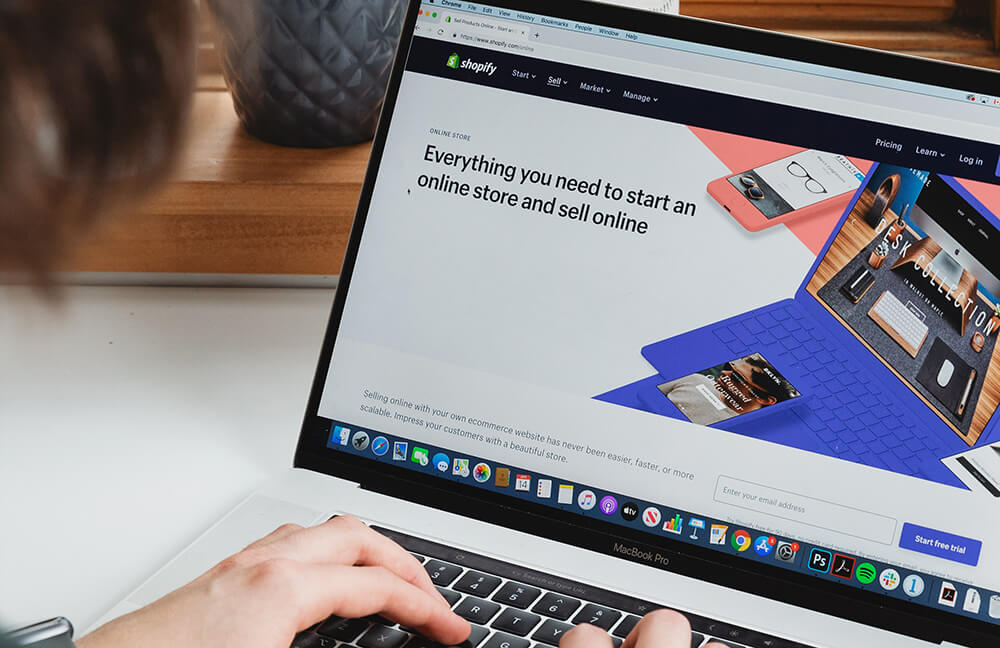Before you take the plunge into e-commerce, there are a few things you should know. This article will give you an overview of the most important things to keep in mind as you start your own e-commerce business. From choosing the right platform to building a customer base, we’ve got you covered.
What is E-commerce?
E-commerce is the buying and selling of goods and services online. It has become increasingly popular in recent years, as more and more people are shopping online.
There are a few things you should know before you start an e-commerce business. First, you need to have a good product or service to sell. You also need to have a website that is easy to use and navigate. And finally, you need to make sure that your website is secure so that customers can feel confident about making purchases.
If you can keep these things in mind, then you will be well on your way to starting a successful e-commerce business.
1. The Different Types of E-commerce businesses
There are four main types of e-commerce businesses: business-to-business (B2B), business-to-consumer (B2C), consumer-to-consumer (C2C), and consumer-to-business (C2B).
Business-to-business (B2B) eCommerce refers to the electronic transactions between two businesses. For example, a manufacturer may sell parts to a wholesaler who then sells them to a retailer. Businesses usually have an existing relationship before they start trading electronically.
Business-to-consumer (B2C) eCommerce happens when a business sells products or services directly to consumers. For example, a retailer like Amazon sells books and other products directly to customers. Customers can browse and purchase products without ever interacting with a human employee.
Consumer-to-consumer (C2C) eCommerce occurs when consumers sell products or services to other consumers. For example, someone might sell their used car on eBay. C2C transactions are usually facilitated by an intermediary, such as eBay or Craigslist.
Consumer-to-business (C2B) eCommerce happens when consumers sell products or services to businesses. For example, a freelance writer
2. Pros and Cons of an E-commerce Business
There are both pros and cons to starting an e-commerce business. One of the biggest pros is that you can reach a global audience with your products or services. You are not limited by geographic boundaries like you would be if you had a brick-and-mortar store.
Another pro is that you can operate your business 24 hours a day, 7 days a week. Your customers can shop on your website at any time of day or night. This is a big advantage over traditional businesses, which have set hours of operation.
A third pro is that you have more control over the look and feel of your website than you would if you were selling through a brick-and-mortar store. You can design your website to reflect your brand and give your customers a positive experience when they visit it.
There are also some cons to starting an e-commerce business. One of the biggest cons is that you will need to invest in good quality web design and development services. This can be a significant expense, especially if you are just starting out. Another con is that you will need to put in extra effort to market your business online and attract customers to your website.
3. What do you need to Start an E-commerce Business?
There are a few things you’ll need to start an e-commerce business. First, you’ll need a website. You can create a website yourself using a platform like WordPress, or you can hire a web developer to create a website for you.
Second, you’ll need to choose a payment processor. This is how you’ll accept payments from customers. There are several options available, so you’ll need to research which one is right for your business.
Third, you’ll need to set up shipping. This includes figuring out how you’ll get products to your customers and how much it will cost to ship them. You may need to partner with a shipping company or use a fulfillment service like Amazon Fulfillment.
Fourth, you’ll need to decide what products you’re going to sell. This requires research into what products are in demand and what your competition is offering.
Finally, you’ll need to create marketing materials for your business. This includes things like a logo, business cards, and social media accounts. You can hire a graphic designer to help you with this, or do it yourself if you’re feeling creative.
Starting an e-commerce business isn’t easy, but it can
4. How to Promote your E-commerce Business
There are a number of ways to promote your e-commerce business. One way is to create a website and use search engine optimization (SEO) to make sure that your site comes up high in the search results when people are looking for products or services that you offer.
Another way to promote your e-commerce business is to use social media. Create accounts on popular social media sites like Facebook, Twitter, and Instagram. Then, post interesting and engaging content that will get people interested in your products or services. Make sure to include links back to your website so that people can easily find it.
You can also use traditional marketing methods to promote your e-commerce business. This could include things like advertising in newspapers or magazines, or setting up a booth at trade shows or other events.
No matter what method you choose, promoting your e-commerce business is essential for getting it off the ground and making it successful.
5. Alternatives to an E-commerce Business
If you’re considering starting an e-commerce business, you’re not alone. E-commerce is a popular choice for entrepreneurs, and for good reason. It’s a relatively easy way to start a business, and there are many success stories of businesses that started out small and eventually grew into big successes.
However, before you start an e-commerce business, there are a few things you should know. First, there are alternatives to an e-commerce business. If you’re not sure if e-commerce is right for you, consider starting a brick-and-mortar store or an online store that doesn’t sell products (such as a service-based business). There are also many hybrid models that combine elements of both e-commerce and brick-and-mortar businesses.
Second, you need to be aware of the potential pitfalls of starting an e-commerce business. For example, it can be difficult to stand out in a crowded marketplace, and you’ll need to invest time and money into marketing your business. Additionally, there are some logistical challenges associated with selling products online, such as shipping and returns.
Overall, starting an e-commerce business is a great option for many entrepreneurs. However
Conclusion
Starting an e-commerce business can be a great way to make money and reach a global audience. However, there are a few things you should know before you get started. First, research the market and make sure there is demand for your products or services. Second, build a strong team of experts to help you with marketing, design, development, and more. Third, create a detailed business plan that outlines your goals and how you plan to achieve them. Fourth, choose the right platform for your e-commerce site. And fifth, invest in marketing and advertising to get your business off the ground.




